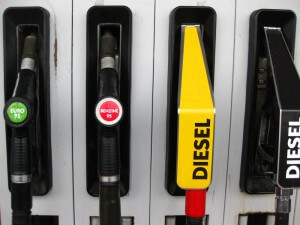Petrol Vs Diesel - What is now the best choice?
Official research indicates that buying and running a vehicle leaves a huge dent on our monthly pay packet, and often even higher than food bills and mortgage payments. The National Statistics office states that families spend an average of £55 on their car per week and this figure includes cleaning materials, antifreeze and fuel. What it doesn’t include is car insurance premiums so when you add that, you have a bill of roughly £66 per week. Apart from this, families spend roughly £45 on council tax and mortgage interest, £59 per week on non-alcoholic drinks and food and £25 on their gas and electricity bills.

But as a nation of motorists and with car sales reaching upwards of 6.7 percent in the past year, and with two million new vehicles sold in 2014 alone, the big question we are faced with is if buying a vehicle is always the best option. Good news is that there are several ways to cut down on motoring costs, some of which are listed below.
Finance your Vehicle or pay Cash – The fact remains that cash paying car buyers are more welcomed by car dealerships as they’d prefer to get the entire amount upfront, and is beneficial for the buyer as well, as it leaves them in a better position to negotiate. But reports from the Financing and Leasing Association indicate that a significantly higher number of motorists are opting to use finance to buy their vehicle than buying outright. One of the reasons for this is zero interest finance, which is available at many dealers, but this means that most of the time you will require a large deposit.If you don’t have this rather large sum to put down, you can always opt for hire purchase agreements, where you pay interest between 7 and 13 percent. This allows you to make a small deposit, but the pitfall is that you don’t own the vehicle until the contract is over. When deciding between buying and leasing a vehicle, you will benefit if your selected vehicle depreciates in value, but this is something that is generally hard to predict. You can always opt to buy the vehicle at the end of the lease, but these types of lease plans are typically more expensive.
Finally and most important question is if a diesel or petrol car will be cheaper and both options have their pros and cons. Diesel powered vehicles are overall cheaper to run but can have hidden costs such as paying almost £100 per year to park your vehicle in emission zone areas. A report released recently revealed that diesel car buyers were wrongly targeted, an even if you skip the emission tax, it is still more expensive at the pump. Petrol cars on the other hand are generally cheaper to buy, but it is important to research your chosen vehicle thoroughly before making an investment. At the same time, it is also important to check insurance costs and compare them across several vehicles because the last thing you want is to be able to pay for your car finance premiums and be stuck with unaffordable high insurance costs.